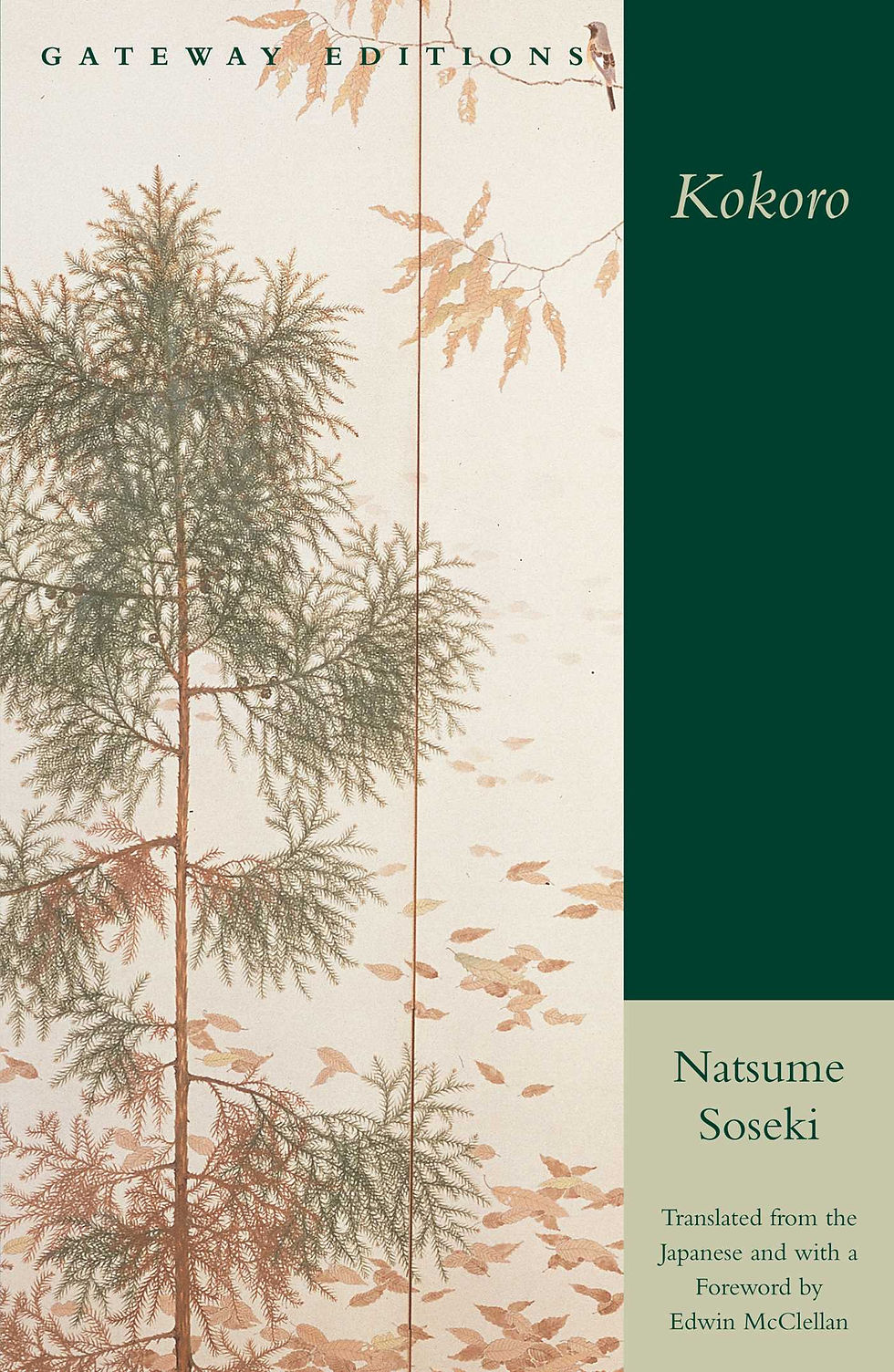The Heart of Loneliness
- Jun 6, 2019
- 2 min read

Recently (within the past two years), I've been drawn to Japanese literature. It started with Haruki Murakami and then quickly extended to other Japanese writers in translation. There's something about the tenderness of friendship, the contemplative, sometimes surreal worlds, and the threads of loneliness, modernity, and moral complexities, that resonate deeply within me.
Kokoro by Natsume Soseki (translated into English by Edwin McClellan) touches on several of these same ideas. It is split into three sections, and begins with a narrator introducing an older man he refers to only as "Sensei." After meeting Sensei on vacation, the narrator visits him throughout the next year in Tokyo, where Sensei lives and the narrator goes to school.
The two form a student-mentor relationship of an unconventional kind. Sensei rarely engages with the narrator to impart pieces of wisdom or philosophy, but the narrator finds himself learning from him just the same. Despite his admiration for his teacher, the narrator is easily frustrated with the man and how little he knows about him. He feels that the key to uncovering Sensei's real identity and motives lies in the past he refuses to speak of.
This is partially an emotion-driven coming-of-age story for the narrator, who grapples with his feelings of personal greatness and superiority over his uneducated parents, despite having no real conception of things like death. But a large part is also told from Sensei's point of view, indicating that a "coming-of-age" maturation and acceptance is not limited to a singular period within one's life.
By book's end, two characters commit suicide, and the novel's philosophical treatment of suicide, especially within Japan, where suicide has a history of being an honorable way to die and atone for past actions, is especially interesting. Is it worth living if you're truly unhappy with life and you've tried to live (not within the realm of mental health issues)? How does it feel to be guilty to just be alive?
Perhaps due to it being published in 1914, there are several misogynistic comments sprinkled through the pages and they pulled me out of the story, because they forced me out of the narrator's perspective. The narrator feels that an educated woman is not on par with an educated man. Ojosan, while kind and loving, does little besides flirt, giggle, and later, wait on her husband, willing to do anything to please him. While her mother Okusan is depicted as a "strong" woman, it is always beside a description of her as an army-wife, thus attributing her directness and strength of character to her husband and his occupation.
This novel felt very emblematic of classic Japanese literature, what with the struggle between the past and modernity, the gut-wrenching feelings of guilt and loneliness, and the contemplative ruminations on love, greed, and family.
I like existential anguish (well, perhaps I don't like it, but I experience it, so it's nice to see others grappling with it), so I liked this book.
7/10 📕



Comments